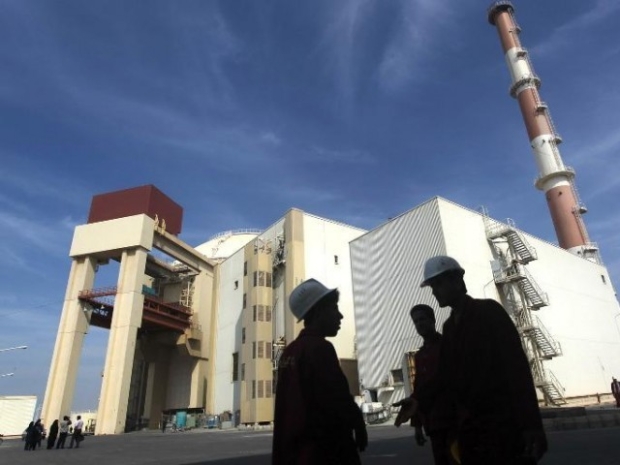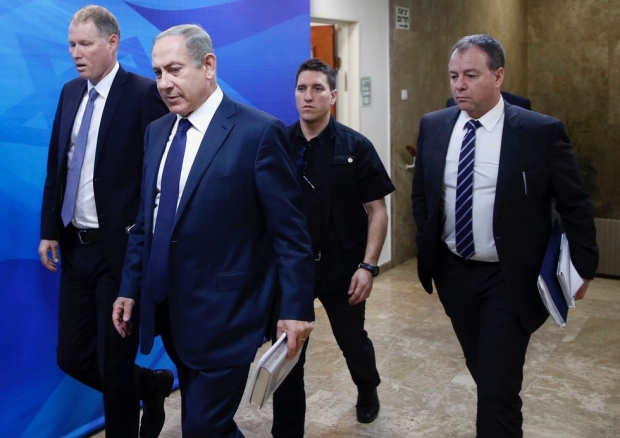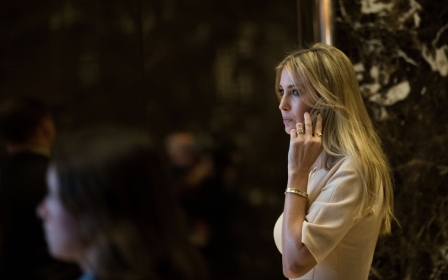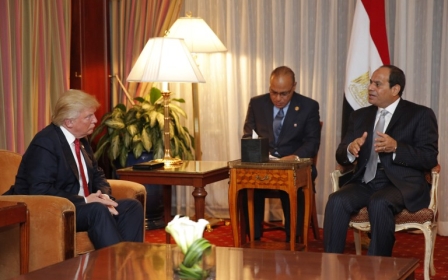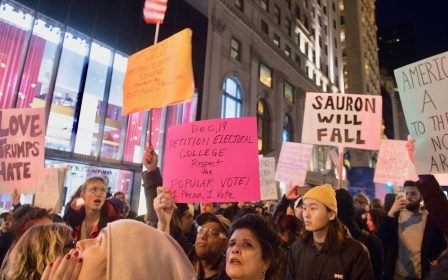Trump and the Middle East: What he could do with Iran, Israel, Syria
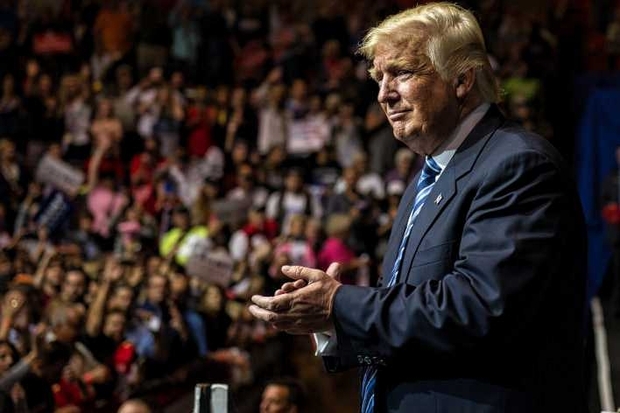
NEW YORK, United States – The Middle East was not lacking in wildcards. It now has another one in the shape of Unites States president-elect Donald Trump, whose campaign proclamations on Israel, Syria and Iran presage more shake-ups for an ever-agitated region.
Trump, a Republican whose colleagues will control both houses of Congress when he takes office in January, argues that America is overstretched, that heavyweights like Russia and China should have freer hands in their backyards and that US allies should do more of the heavy lifting.
For the billionaire, these are necessary steps to focus on domestic ills and fulfil his pledge to “make American great again”. To some, particularly fearful allies, it marks the unravelling of a post-1945 world order that was undergirded by US military, economic and political might.
Trump argues that America is overstretched, that heavyweights like Russia and China should have a freer hands in their backyards and that US allies should do more of the heavy lifting
In the Middle East, the devil is in the detail. For years, many in the Arab World railed against Washington’s military excursions in Iraq, Libya and elsewhere and its support for autocrats in Egypt, Saudi Arabia and elsewhere rather than the Islamists who would likely replace them.
To some, Trump’s Democratic election rival, Hillary Clinton, was a hawk who showed her interventionist reflexes in Libya and would authorise a no-fly zone above Syria in continuity with decades of US intervention in the region, had she won the Oval Office.
Trump’s presidency may resemble the reverse and, counter-intuitively, a furtherance of US President Barack Obama’s extrication of the US from the Middle East. Those who bemoaned Uncle Sam’s meddling will get their wish but may get buyers’ remorse.
To probe the impact of a Trump presidency, Middle East Eye spoke with top scholars to find out what the braggadocios businessman could spell for the Israeli-Palestinian conflict, the nuclear deal with Iran and Syria’s civil war.
Syria: Exit the Quagmire
Syria’s multi-front war between President Bashar al-Assad’s forces, rebels, Kurds and religious militants is a problem from hell that has claimed some 400,000 lives and sucked in money, guns and troops from Turkey, the Gulf, Russia and the West.
The way Trump tells it, the Islamic State (IS) group that is being slowly beaten in Iraq and Syria should be Washington’s only focus. Unlike Obama, he says that letting a strongman like Assad stay in power is a small price to pay for vanquishing IS, which is also known as ISIS and ISIL.
“Wouldn’t it be nice if we got together with Russia and knocked the hell out of ISIS?” said Trump, 70.
Trump’s willingness to work with Assad’s backers in Moscow and Tehran is troublesome for Washington’s Gulf allies, who fear Iran’s growing regional clout. It could also signal closer ties with neighbourhood autocrats, such as Egypt’s President Abdel Fattah el-Sisi.
'Wouldn’t it be nice if we got together with Russia and knocked the hell out of ISIS?'
- Donald Trump, US president-elect
“Trump’s main goal seems to be to resume some calm in war-torn lands and allow the US to withdraw troops from them, even if this means maintaining regimes such as Assad’s and ceding big power influence there to Russia,” Rami Khouri, an American University of Beirut scholar, told MEE.
IS may have been beaten out of Mosul, in Iraq, by the time Trump gets his White House keys. Assad’s forces re-started bombing rebel-held eastern parts of Aleppo after the 8 November US election, Russian forces have hit militants elsewhere in Syria.
Assad now calls Trump a “natural ally” for fighting “terrorists”.
“Trump clearly will affirm what he feels is best for the US, regardless of the consequences in the Middle East. He can focus on addressing American domestic challenges only by ending the US’ expensive legacy of non-stop wars in the region these past 35 years,” added Khouri.
Iran deal: Too tangled for Trump
Trump is no fan of the Iran deal, which saw the US, Russia and others agree to lift sanctions on Tehran in exchange for curbs to its nuclear programme. He vowed to renegotiate or renounce the agreement, one of Obama’s signature achievements.
Trump called the nuclear pact a “disaster” and “the worst deal ever negotiated”. Many Republicans in Congress agree, but untangling perhaps the fiddliest arms control pact in history will not be easy.
If Trump ditches the deal, Iran will no longer be bound by its prohibitions on enriching uranium and other bomb-yielding work. Moscow, Beijing and Washington’s other partners are unlikely to re-implement sanctions on Tehran if the deal falls apart.
“Rouhani, facing a hostile right-wing and his own re-election in 2017, cannot engage now in such a negotiation, which would be the end of his political career,” Hamid Zangeneh, a former scholar of Widener University, told MEE.
“Knowing that, Trump should not scrap the Iran deal and wait until the Iranian election to see if Rouhani survives.”
This week, Obama warned against deal-scrapping, saying: “It becomes more difficult … to undo something that’s working than undo something that isn’t working.” His officials speak of leaving behind a sanctions “tool box” that Trump can use to turn the screws on Tehran.
'Trump should not scrap the Iran deal and wait until the Iranian election to see if Rouhani survives'
- Hamid Zangeneh, academic
Some 76 experts signed on to a 45-page report from the National Iranian American Council (NIAC) that offers the next commander-in-chief a blueprint to “build on” the nuclear deal and “help stabilise” the turbulent region.
“If Trump’s priority in the region is defeating IS, he will not only need collaboration with Russia and Iran, he will also need to sustain the Iran deal in order to avoid a deterioration of ties with Tehran that inevitably would affect the struggle against the group,” NIAC president Trita Parsi told MEE.
“Trump’s far more likely path to unravel the deal would be to add political risk to any Western companies contemplating entry into the Iranian market. Businesses will then tend to avoid entering Iran in order to evade the cost and embarrassment of having their deals sabotaged by new potential sanctions.”
Israel: Some things never change
Arabs may start to look back fondly on the early stages of Trump’s campaign, when the celebrity builder departed from the Republican playbook by promising to be a “neutral” broker between Israelis and Palestinians.
It was short-lived. In March 2016, he walked back those words at the annual American Israel Public Affairs Committee’s (AIPAC) policy confab, when he gushed about an “unbreakable bond” between the US and Israel.
This was a departure from successive US administrations – both Democrat and Republican, which have chastised Israel for building Jewish homes in the West Bank, saying it undermined the desired two-state solution.
'Trump will face limited immediate pressure to deal with Israel, but will have to clarify whether the US still supports the two-state solution'
- Anthony Cordesman, former consultant to the US military, NATO
Israeli hardliners came out in full force after Trump’s win. Education minister Naftali Bennett hailed his win and declared: “Trump’s victory is an opportunity for Israel to immediately retract the notion of a Palestinian state in the centre of the country.”
Others called on Trump to come good on his campaign pledge to move the US Embassy to Jerusalem from its current location in Tel Aviv.
“Trump will face limited immediate pressure to deal with Israel, but will have to clarify whether the US still supports the two-state solution,” Anthony Cordesman, a former consultant to the US military and NATO, told MEE.
“This won't necessarily mean any need for action - expectations and probabilities for real progress in peace efforts are negligible. But Israeli-Palestinian tensions have reached the point where publicly deciding on future US policy is necessary.”
This article is available in French on Middle East Eye French edition.
Middle East Eye propose une couverture et une analyse indépendantes et incomparables du Moyen-Orient, de l’Afrique du Nord et d’autres régions du monde. Pour en savoir plus sur la reprise de ce contenu et les frais qui s’appliquent, veuillez remplir ce formulaire [en anglais]. Pour en savoir plus sur MEE, cliquez ici [en anglais].



